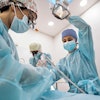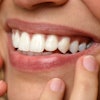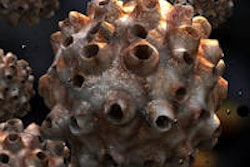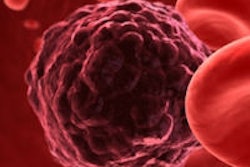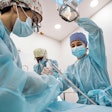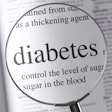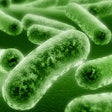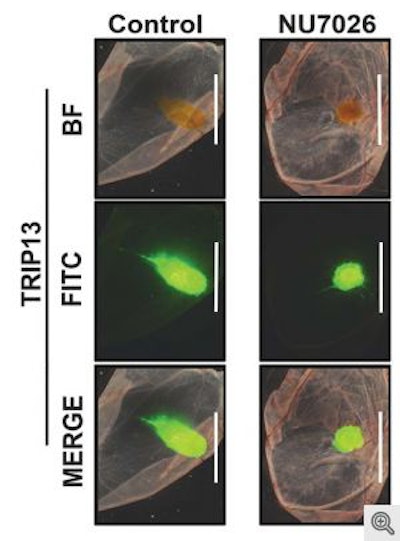
Cancers that are highly resistant to treatment, such as head and neck cancer, contain cancer cells that repair themselves during radiation and chemotherapy. What if there were a way to turn off that repair mechanism in cancer cells?
University of Michigan (U-M) researchers have identified a protein, TRIP13, that encourages these cells to repair themselves and an existing chemical that blocks this mechanism for cell repair, according to a study in Nature Communications (July 31, 2014).
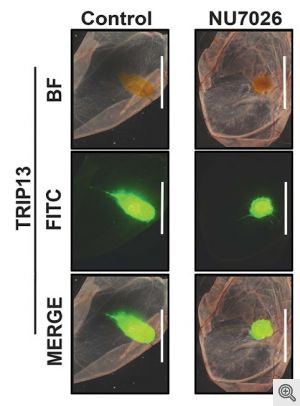 Left column: Untreated head and neck cancer cells are tagged fluorescent green. Right column: Shows cells treated with the chemical inhibitor that blocks TRIP13, which results in a dramatically smaller tumor. Image courtesy of Rajat Banerjee.
Left column: Untreated head and neck cancer cells are tagged fluorescent green. Right column: Shows cells treated with the chemical inhibitor that blocks TRIP13, which results in a dramatically smaller tumor. Image courtesy of Rajat Banerjee.Targeting this repair mechanism with specific drugs could increase effectiveness of treatment and improve survival rates. Head and neck cancer is the sixth most common cancer in the world, but the late detection and treatment resistance result in a high mortality rate.
"This is a very significant advance, because identifying the function of the protein that fuels the repair of cancer cells and having an existing chemical that blocks the process, could speed the process of moving to clinical trials," noted principal study investigator Nisha D'Silva, PhD, a U-M professor of dentistry and associate professor of pathology, in a statement.
In head and neck cancers, D'Silva and colleagues showed that cancer cells that overexpress TRIP13 were able to repair their DNA enough to survive and continue to grow as cancer.
"And given the overexpression of TRIP13 in several treatment-resistant cancers, this strategy will likely be important for multiple cancers," D'Silva stated.

